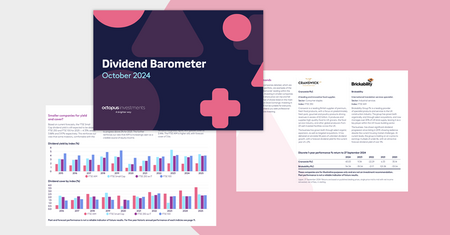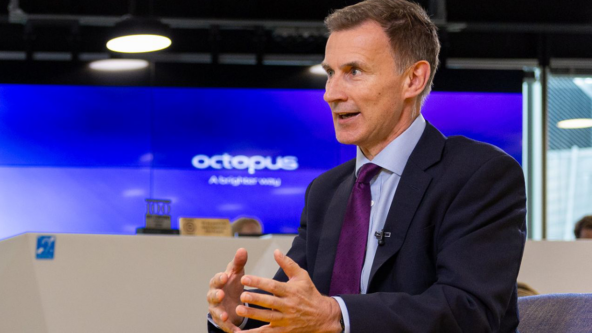In this Q&A, Lilly Whale, Associate at London-based law firm Goodman Derrick, explains why professional connections are vital to her work as a private client solicitor, what is important to her in developing her relationship with advisers, and how to connect when the world is working from home.
How important are professional connections with financial advisers to your work?
The significance of these relationships to our business cannot be underplayed. Building relationships isn’t just to our benefit, it is to the benefit of our clients. There are areas we are simply not able to provide advice on – and our regulating body would have something to say if we started to provide financial or investment advice – so if we want to provide the best service to clients, having a bank of advisers to refer our clients to is vital. This way our clients should benefit from a holistic approach to their estate planning.
We work with a few advisers at any one time and currently my team is working with around four advisers directly. Roughly speaking, 20-25% of our new instructions are referrals from financial advisers which gives a sense of scale to the importance of these relationships to private client solicitors and the opportunities that exist for financial advisers.
What tend to be the contributing factors when choosing an adviser to work with?
We want to work with advisers that are the best fit for our clients and their circumstances. Every client is unique and will often require nuanced advice, so advisers having a clear specialism is key. While we want to be confident that the adviser we refer to is the most qualified and experienced with clients in that situation, soft skills cannot be overlooked.
We tend to make referrals based on the adviser as an individual – their personality, their approach, and even their similarity to clients. For example, one of our younger clients is a successful musician and therefore we referred them to a younger adviser with prior financial experience in the world of music who we felt would be a good match for them. To help us match our clients to the right advisers, it is helpful when an adviser is clear about the types of clients they work best with.
Our overarching concern when making a referral is whether an adviser’s culture and values match our own. Our clients are the key driver of our business, so we need to think carefully about what, and how, the adviser will contribute to the relationship. For example: do they understand the client’s end goals? Will the adviser’s approach match our own? Are they likely to be hands-on or hands-off? Do they value teamwork and a joined-up approach?
What has your experience been of developing and maintaining relationships with financial advisers, as we continue to work from home?
Maintaining professional connections in the midst of a global pandemic has been challenging. However, like with many other things, just because you can’t meet face-to-face doesn’t mean you should stop altogether. Regular touch points are key to working relationships and should be kept up as far as possible.
We are all accustomed to staying in touch virtually and there is no reason not to meet for a Zoom coffee and catch-up or send your connections a note with an article that may be relevant to them.
For example, we use a social platform called Passle, which allows you to create insights and share expertise with contacts in just minutes – it’s a great way of using technology to keep on top of your contact book and retain relationships.
Professional connections are vital to our business, so they have to continue whether we’re working from home or the office.
As we emerge from the pandemic, we’re excited to start networking and meeting new advisers again. We’re expecting a flurry of activity, not just in terms of meeting face-to-face again, but also in terms of advice. We noticed that several of our clients delayed making important financial planning decisions because of the pandemic, so we anticipate that there will be a surge in planning. I read in Octopus Investments’ latest research that over 60% of advisers have clients in the same situation, which didn’t surprise me. This could mean an increase in the number of clients that we need to refer as we emerge from lockdown.
What are the top tips you would give to financial advisers looking to build new, strong professional connections with solicitors?
It may seem obvious, but if you want to build strong connections, communication and a joined-up approach is key. There needs to be honest and frank discussions from the start to outline what can be offered, draw up boundaries, and set out how each party likes to work.
Secondly, private client solicitors are looking to build long-term relationships, which means patience is important. Octopus Investments’ survey found a typical referral relationship takes roughly eight months to build, and I would say that is accurate.
Ultimately, these relationships work best when they are long-term partnerships, so advisers can’t be looking for quick wins. If we refer a client to an adviser and then hear nothing from them, we’re unlikely to work with them again.
A benefit of having open conversations at the start of a new partnership is that you can be realistic about expectations. Some advisers assume that we’ll have half a dozen clients to refer them to every single month, which just isn’t the case. Having established a relationship with an adviser, my experience is that referrals can be a bit like London buses: you may be waiting for a while, but then three come along at once.
Advisers that invest the time in these working relationships will most certainly see the benefits for their clients and ultimately their business, as we do ourselves.









